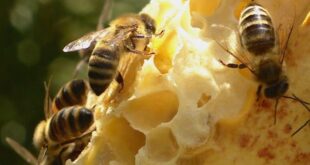Environment minister said he recommended order to prevent logging in old-growth area in B.C. where owls live

A federal government decision to reverse course on issuing an emergency order for the northern spotted owl in southwest British Columbia has angered the Spuzzum First Nation, which asked for the protection of the endangered species.
Chief James Hobart said members of his community are "furious'' after the decision was outlined in a letter issued this week by the Canadian Wildlife Service, a branch of the Department of Environment.
The letter said the government will not bring in an emergency order to prevent logging in two watersheds within Spuzzum territory in the Fraser Canyon, around 130 kilometres northeast of Vancouver.
The logging was an activity that Environment Minister Steven Guilbeault had said posed "an imminent threat" to the survival of the northern spotted owl.
WATCH | Chief James Hobart on the need to protect northern spotted owls:
Guilbeault said earlier this year in another letter from the Canadian Wildlife Service that he was recommending the emergency order to cabinet to protect the species.
Hobart said Guilbeault visited Spuzzum in February and saw firsthand the situation with spotted owls and their habitat of old-growth forests.
But he said there has been no engagement with the nation since then, other than the second letter saying cabinet was instead endorsing "a collaborative approach'' with the provincial government and Indigenous communities after considering factors such as socio-economic and legal impacts.
"Here's a federal minister asking me, 'What can I do?''' Hobart recounted of their meeting in February. "That's what he said — so I told him.
"We needed him to stick up for this. We didn't need him to bring it on as if it was just another thing in the House. I don't think that anybody that had been out on the land with us could have gone there and accepted these words [in the decision]."
In a statement, Environment and Climate Change Canada said Guilbeault "fulfilled his obligation under the Species at Risk Act" by bringing his recommendation to cabinet.
"The Government of Canada recognizes that more needs to be done to support the recovery of the spotted owl," the statement said. "Collaboration with British Columbia and First Nations is the preferred approach for achieving the species recovery."
The statement also said the federal government is "working closely with partners" to make sure initiatives such as spotted owl habitat protection and breeding-and-release programs are supported in a nature-conservation agreement with the province and Indigenous communities that is currently still under negotiation.
Hobart said the spotted owl is not only sacred to a number of First Nations, but is also a "messenger of the health" of the region's old-growth forests because of its dependence on their ecosystems for survival.
As such, the health and survival of B.C. spotted owl population is vital for, and a key indicator of, the province's old-growth ecosystem's well-being — something that Hobart said extends beyond the value of the lumber if the area continues to be logged.
"Right now, there's a dollar value on the trees,'' he said. "I'm saying that in a way so people get the understanding that it's the only thing that is important to the government.
"To us, it would be like a recipe for cake. How many things can you keep taking out of the recipe before it's no longer cake? That's what's happening."

There is only one known wild-born spotted owl, a female, living in the Fraser Canyon, while two more captive-bred males were released into the wild earlier this year.
Hobart said other First Nations communities he has spoken to have also expressed disappointment, especially given the federal and provincial government's recent messaging on reconciliation and working together to manage natural resources on Indigenous land.
"Instead of calling upon the First Nations to be part of the team, I think they're still thinking of us as part of the opposition," he said.
"Right now, it's the perfect time for them to get things done with us, but they're turning their backs on us by doing stuff like this."
The environmental group Wilderness Committee is asking for a judicial review of the minister's decision in a federal court later this month. It wants the court to determine if Guilbeault or his department acted at odds with the federal Species at Risk Act.
The group, represented by environmental law charity Ecojustice, said Guilbeault may have taken too long to make his recommendation of an emergency order to protect the owls.
"The court will be asked, in this case, to determine whether it is reasonable for the minister to delay the recommendation when logging of the owl's habitat continued throughout the spring and summer,'' Ecojustice lawyer Andhra Azevedo said in a written statement.
"It's important to bring these issues to court, in order to emphasize that species at risk cannot afford to wait months — or if we consider the full history of spotted owl decline, decades — for effective protection."
*****
Credit belongs to : www.cbc.ca
 MaharlikaNews | Canada Leading Online Filipino Newspaper Portal The No. 1 most engaged information website for Filipino – Canadian in Canada. MaharlikaNews.com received almost a quarter a million visitors in 2020.
MaharlikaNews | Canada Leading Online Filipino Newspaper Portal The No. 1 most engaged information website for Filipino – Canadian in Canada. MaharlikaNews.com received almost a quarter a million visitors in 2020.







